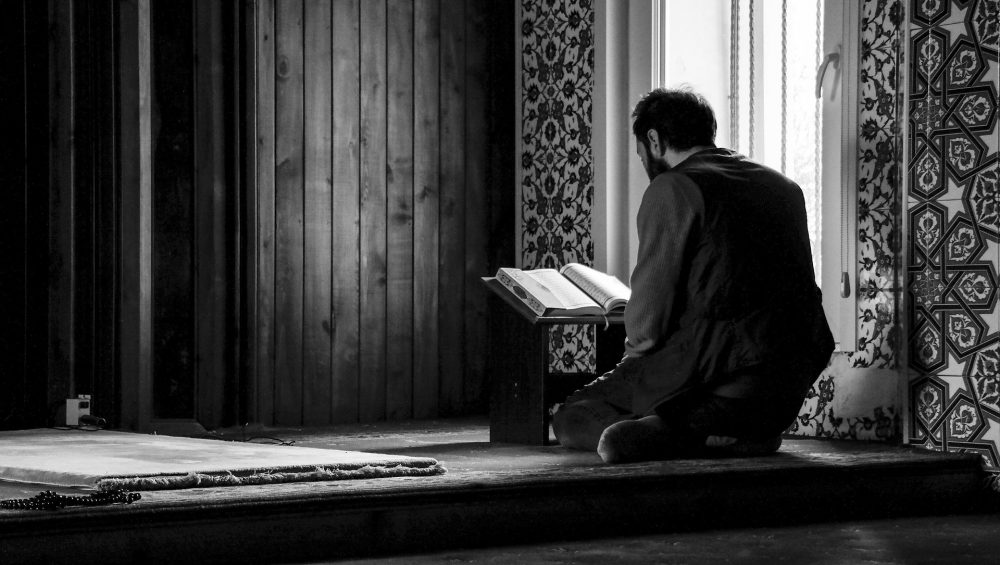The Book of Wisdom (Kitab al-hikam) is a piece of Islamic spiritual literature by Imâm Ahmad Ibn ‘Atâ’illâh As-Sakandarî. In this book, different aphorisms are discussed. [An aphorism is a brief saying or phrase that expresses an opinion or makes a statement of wisdom without the flowery language of a proverb, red.]In this article we will take a look at aphorism 21 in Al-Hikam:
“Addressing a demand to Allah, means suspecting him. Looking for Him implies your absence from Him. Looking for someone other than Him, implies your lack of modesty towards him. Asking someone besides Him means being far away from Him.”
First of all, to understand this aphorism, one should clearly distinguish a rule, a collection of rules and a collection of aphorisms like the one of Ibn ‘Atâ’illâh. If we take this aphorism as a general rule, it might lead to a discontinuity in the relationship with our creator for many servants. Therefore, for the interpretation of this aphorism, it is important to see it as a means to transmit an important lesson or a recommendation that doesn’t necessarily apply to all situations or all servants.
First of all, we need to reflect about why we ask Allah. Doesn’t He just do what He wants and what is best for us? When we look at the beautiful names of Allah, we find the name al-Mujib, which means the Answerer of Prayers, the Responsive One or the Fulfiller of Prayers. Allah wants us to call on him, as stated in the Quran “Call on me, I will answer you. (40:60)”
Du`a’ (supplication) is an incredibly powerful means that is often misunderstood. First of all, we need to know that when we make Du`a’, there are three possible outcomes. In the first case, God responds immediately and gives us what we ask Him for. In the second case, God gives it to us when the timing is right. In the third case, God does not give it to us, but gives us something better instead. When we make Du`a’ we need to be submitted to Allah (tawakkul). There should be no doubts that Allah is able to answer our supplications.
When we invoke Du`a’, we should embrace the following:
– Certainty: we need to be fully confident that God will answer our Du`a’, we need to accept that the response may be different from what we assume is best for us. We need to remember at all times, that thinking that we know what is best for us comes from our nafs (ego).
– Submission: invoking Du`a’ is a perfect moment to be thankful for all we have to fully submit ourselves to the will of Allah.
-Humility: we need to stay humble at all times.
Addressing a demand to Allah, means suspecting him. When we see Du`a as an opportunity to thank Allah and to submit ourselves to His will, we can say that Du`a is not about making demands. Without full submission, a Du`a implies doubting Allah from a certain point of view since you are addressing your requests out of fear that He will forget you or abandon you. This fear tells you that you need to submit yourself more to the will of Allah, and be sure that only Allah knows what is best for you. For most servants, addressing their requests to God, for Dunya or Akhira, helps them develop a relationship with Allah and for them this aphorism could help to be more humble when they ask Him. It could help understand that God knows what is better for us.
Looking for Him implies your absence from Him. If you would have found Him, you wouldn’t need to look for Him. Everyone is looking for what he doesn’t have. This, of course, doesn’t mean that we can provoke being in His divine presence by stopping to look for Him. Allah tells us that everything is from him, he is the possessor of the whole world and everything in it. We should seek all our needs from Him. We only seek forgiveness when we have sinned and we only seek food when we are hungry. We only seek Him when we are far away from Him.
Looking for someone other than Him, implies your lack of modesty towards him. To look for acknowledgment from someone other than God is a sign of a lack of intimacy with Him. This does not mean that we need to turn our backs to everyone, but that we do not turn our backs to God. In this dunya, we don’t have many choices we really make, but we have the choice to direct ourselves towards God or to turn our backs to Him. We cannot forget to prioritize our relationship with the creator.
Asking someone besides Him means being far away from Him. This does not mean that you don’t need to go to the doctor when you are sick, but it means you need to believe that the doctor will eventually cure you with the help of God, if God wants it. When you ask someone besides Him without seeing that everything comes through Him and with the permission of Him, it implies a distance between you and your creator. When you realize that everything comes from God, asking someone besides Him does not create a distance between you and God.

